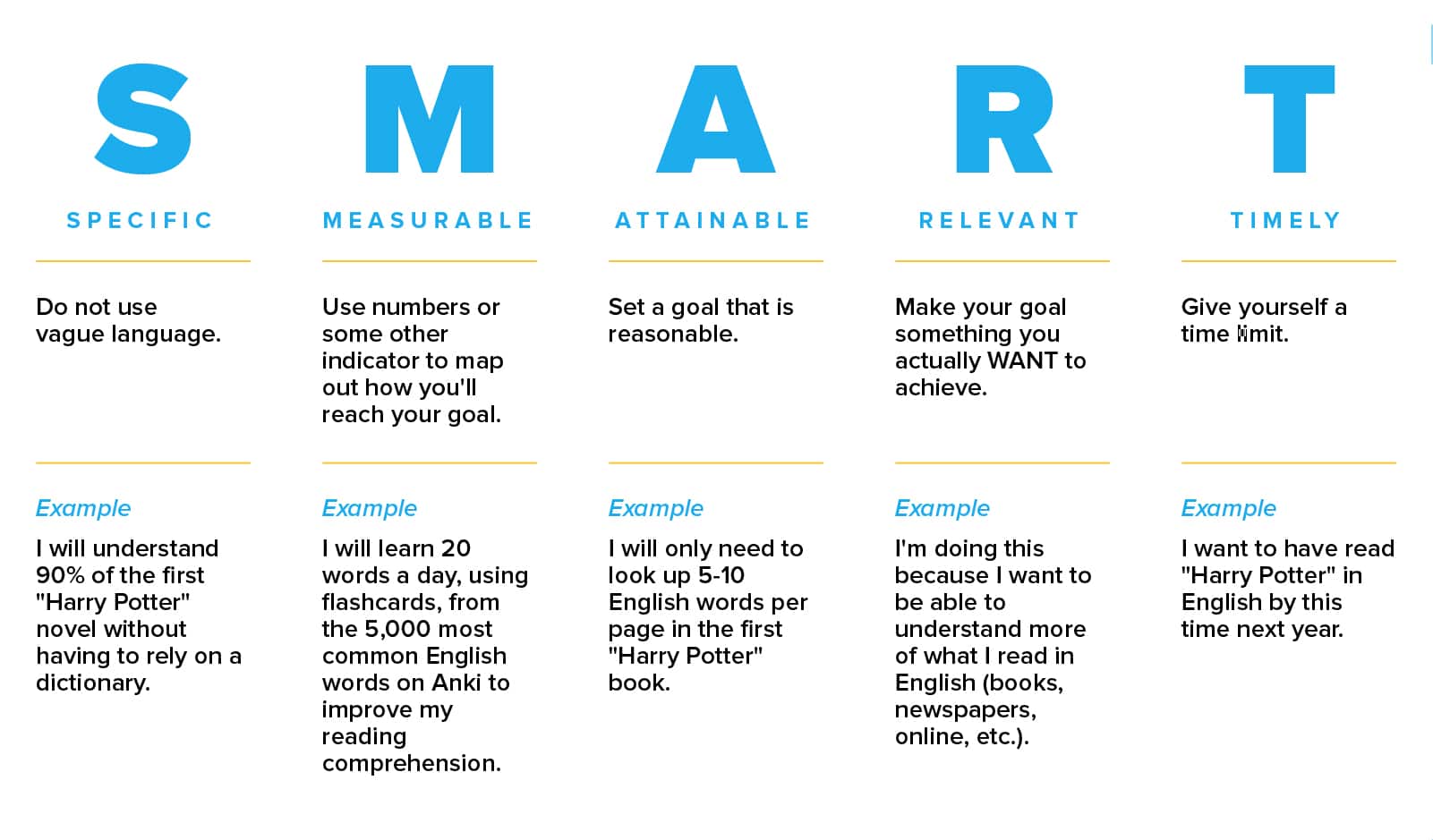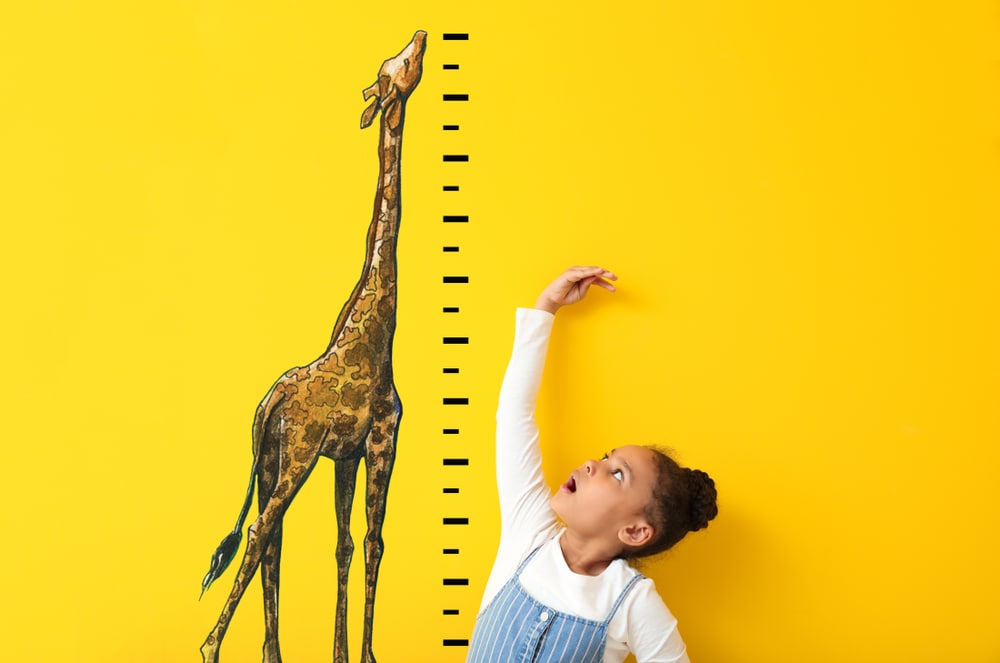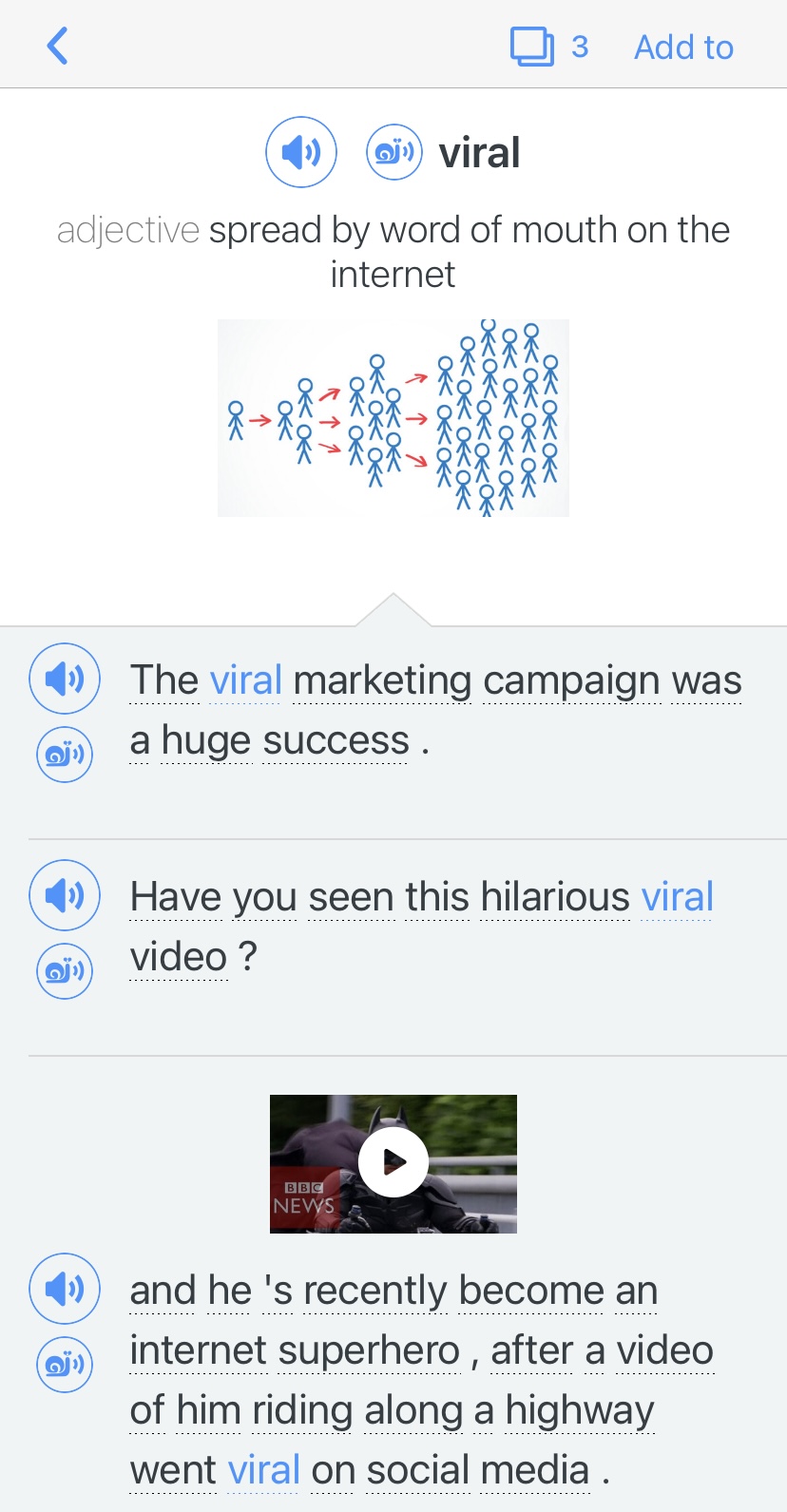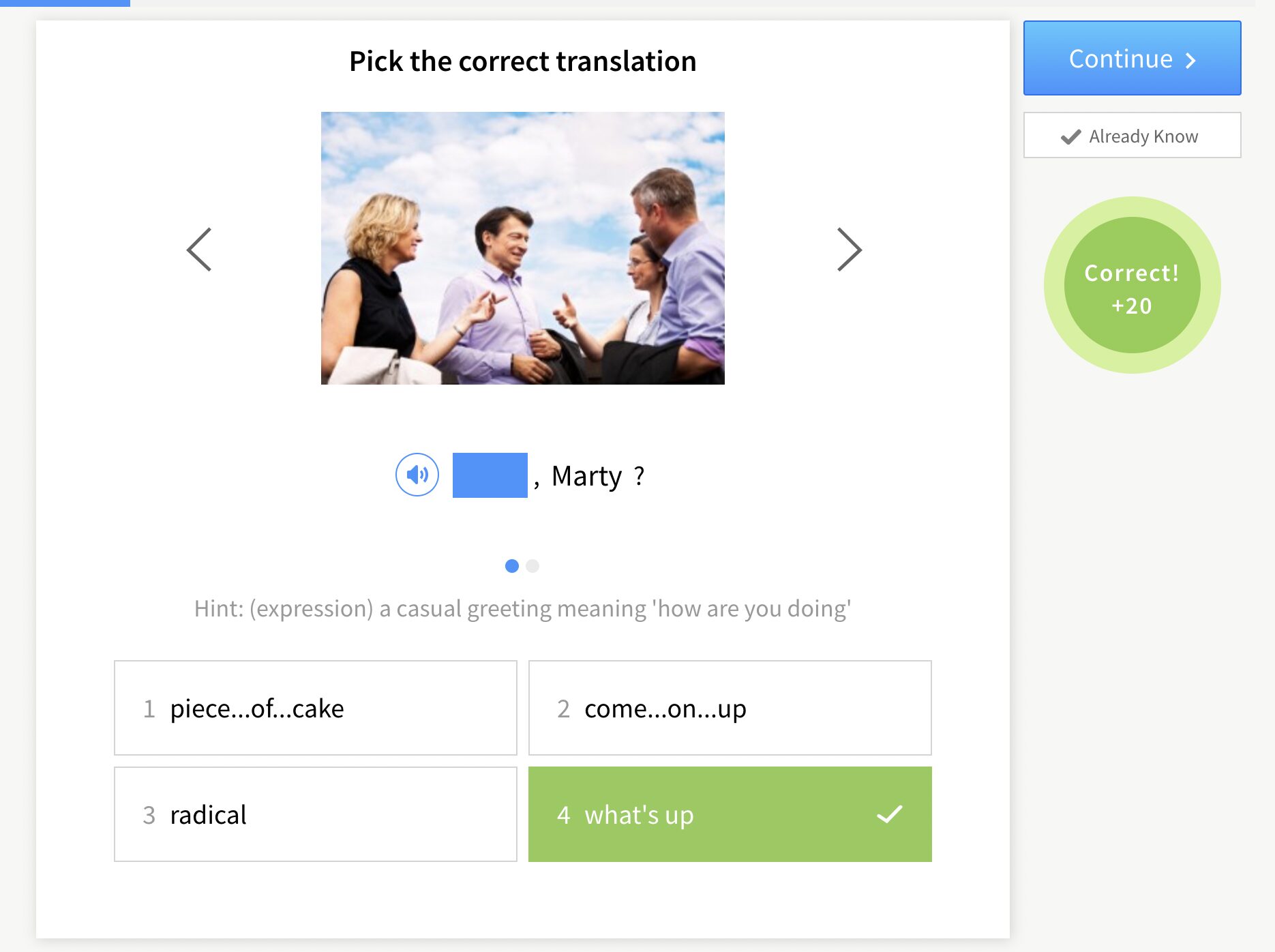Contents
- 1. Set Goals to Learn English by Yourself
- 2. Make an English Study Plan
- 3. Start with Children’s Books, Movies and TV Shows
- 4. Use English Immersion
- 5. Listen to Anything and Everything in English
- 6. Learn with English Music
- 7. Watch YouTube, TV Shows and Movies
- 8. Practice Speaking in English
- 9. Make Flashcards
- 10. Use English Clubs and Language Forums
- 11. Measure Your English Progress
- 12. Stay Motivated
- And One More Thing…
12 Useful Tips to Learn English by Yourself

Learning English on your own can feel hard, but it also gives you a lot of freedom. You don’t need a classroom or teacher—just some useful tips and motivation to practice.
In this guide I’ve shared some easy steps to help you make a study plan, set small goals and add more English to your daily life. Ready to start?
Download: This blog post is available as a convenient and portable PDF that you can take anywhere. Click here to get a copy. (Download)
1. Set Goals to Learn English by Yourself
To learn English without a teacher, you will need to be realistic about your studying.
If you want to know how much English you already know, take an online English level test to check.
Now, decide how long you will study English every day. Thirty minutes is good, but if you can do more that’s even better.
Next, write down your English learning goals. This makes your goals real. Also, writing them down means that you can always look at them again.
You will also want to make many small goals instead of one big goal. Big goals can be intimidating (scary).
For example, look at these two goals:
- I will understand every word in the first “Harry Potter” novel.
- I will understand most of the words in the first “Harry Potter” novel, so that I don’t need to look up every word in the dictionary.
The first one is large and scary, but the second one is very doable!
To make good goals, use SMART goals. SMART stands for five words: Specific, Measurable, Attainable, Relevant, Timely.
Look at the picture below to see how the “Harry Potter” goal works by using the SMART goal method:
2. Make an English Study Plan
After you set some SMART goals, you will want to make an English study plan.
You don’t need to make it look like a college course outline. However, your study plan should have some details about what you will learn and how you will study it.
Think about your English learning goals. Make sure your study plan will help you complete those goals.
For example, say your goal is to improve your English reading. Your study plan should have activities that help with reading, like:
- learning new vocabulary with flashcards
- reading texts and writing summaries
- doing grammar exercises
Make sure your study plan has different types of activities. That will keep your English studies interesting and fun! Here is a sample study plan for your first week of learning English by yourself.
Remember, a study plan should help you complete your goals. That means it can always change if you make new goals!
3. Start with Children’s Books, Movies and TV Shows
Are you just starting to learn English by yourself? Then this is the perfect place to begin.
You need to learn English sounds and basic vocabulary first… Just like English-speaking children!
Children’s books, TV shows and movies cover these basic topics. They are also easy to understand, even if you don’t know a lot of English yet.
Use materials made for children as well as your other learning materials. You will understand more and increase your confidence at the same time!
4. Use English Immersion
To successfully learn English by yourself, you should include English in your life as much as possible.
The best way to do this is immersion. Immersion language learning means surrounding yourself with the language you want to learn. So put English all around you!
You can move to an English-speaking country or city. Or, you can do English immersion at home.
There are many ways to do English immersion at home. You can:
- Label things with their English names. Write the names of objects, furniture or rooms on Post-it Notes. Every time you see a Post-it Note, say the word out loud.
- Use a computer program to learn English. Work through the program at your own speed. A good immersion program will teach you English by using English.
- Do daily tasks in English. You can watch or read the news in English, or talk about what you need to do around the house. You can write a daily journal in English, and much more.
- Talk with native English speakers. Make some English-speaking friends. Then, schedule a time to talk with them every week. It’s fun and educational!
- Read about grocery stores products in English. You can use an app such as ShopSavvy to give you information about the things you see in shops. Give it a try!
5. Listen to Anything and Everything in English
There is a lot of English listening material out there. This is very valuable (useful) for English learners.
Remember, you learned your first language by doing a lot of listening at the beginning. Listening helps you pick up (get) words from the people you hear.
You can do the same with English! At first, you may only understand a little. But the more you listen, the more vocabulary you will acquire (get).
So, listen to English whenever you have the chance. Play English songs in the background. Listen to English-learning podcasts. Watch TV shows or movies, or listen to people speak in English on the street.
Soon, you’ll be having conversations in English, too.
6. Learn with English Music
It’s great to listen to English music while you do other activities.
However, to really learn English from songs, you need to pay attention to the music itself. The words of a song are called lyrics and they can be a great learning tool!
- Choose an English song you like and look up the lyrics. Try to understand what is being said and what it means.
- Write down words and phrases that you think will be helpful to you in the future. Don’t forget to practice using them when you can!
- Study the lyrics until you know them. Then, play the song again and sing along with the words.
Learning with music can be a lot of fun. Plus, songs are catchy (they will stick in your head).
If you forget a word you learned from the song, just start singing! It will probably come back to you.
7. Watch YouTube, TV Shows and Movies
Children’s materials and listening to music can be easy and fun, but you might still want something more engaging (interesting).
- Do you like cooking? Exercise? Science? Look for English videos about your favorite topics on YouTube.
- There are also many YouTube channels for English learners. If you find one you like, it’s almost like having a teacher!
- You can also watch English TV shows and movies. They are a great way to learn culture and real-life language. Take the show “Friends” for example. This clip from our YouTube channel explains all the key vocabulary and grammar.
Here’s also a lesson on “Harry Potter”:
It can be hard to learn with videos at first. There are a lot of things going on. Also, the characters in movies or TV shows may talk quickly. They might use vocabulary you don’t know yet.
Here are some tips to make videos easier:
- Practice by watching shorter videos. For example, watch one movie scene at a time. Stop the video after each sentence so you can understand what the person says.
- Use the subtitles (words at the bottom of the screen) to help you. Look up words you don’t know. Write down words and phrases that show up a lot. Practice using them later when you speak or write.
Actually, some language programs are made to help you learn English with videos. FluentU, for example, uses native English-language videos to help you learn English.
FluentU takes authentic videos—like music videos, movie trailers, news and inspiring talks—and turns them into personalized language learning lessons.
You can try FluentU for free for 2 weeks. Check out the website or download the iOS app or Android app.
P.S. Click here to take advantage of our current sale! (Expires at the end of this month.)

Videos are a great way to learn conversational English. Plus, it will be easier to remember the words and phrases when you can connect them to a picture and scene!
8. Practice Speaking in English
Even though you are learning English by yourself, you will still need to practice speaking!
Luckily, there are many ways to learn English by speaking at home.
First, choose an English accent. Many people around the world speak English. Different places use different accents, as well as some different vocabulary.
The two most popular accents are American English and British English. I recommend choosing one of these. Pick the one that makes the most sense for you.
Of course, there are other accents, like Australian English, Canadian English and South African English. It’s best to only pick one of these if you plan to live in or travel to these places.
Next, practice listening to your chosen English accent. English listening practice will help you learn the sounds of the English language.
Then… Speak!
Repeat what the movie characters say. Read a book out loud. Record yourself speaking in English and correct yourself. There are many ways to improve your English speaking—even by yourself.
But the best way is to speak with a native English speaker. You will practice listening, understanding and responding in the correct way. This is the fastest way to get better at speaking.
If you decide that you would like to work with a teacher, you can use a website or program such italki or Hello English to find someone.
9. Make Flashcards
Flashcards are a great way to practice words and phrases. You can make physical (real) flashcards or digital (online) flashcards.
To make physical flashcards, get some small pieces of paper, like index cards. Write the English word on one side, and then write the word in your language on the back.
To make digital flashcards, you can download an app on your phone. Try one like Anki or Quizlet to get started.
When you have free time, flick through (quickly look at) the cards and see how many you remember.
Start by reading the English side. Try to remember the word in your native language.
Once you know all of the cards this way, reverse it (go the other way). Start with the word in your language and try to remember the English word.
10. Use English Clubs and Language Forums
Do you have friends who are also learning English? If the answer is “yes,” then take advantage of this (make it helpful to you).
- Meet up with your English-learning friends every week. You can meet at home or in a local café.
- It doesn’t matter where you meet. The important thing is that you only speak in English together. Don’t use any other languages!
- Nominate (choose) one person to bring an interesting topic to discuss (talk about) every week. You might discuss new English websites you found, a cool news article or even use some conversations cards.
- You can also join online forums (places to send messages). There are online forums about all kinds of topics. This means they are great places to practice your written English and communication skills.
For example, a popular online forum is Reddit. You can look for topics (called “subreddits”) that interest you. You can:
- read other people’s posts
- reply to other users
- join conversations
You can even make a post yourself! Try to start a conversation by posting something that people will want to respond to.
11. Measure Your English Progress
Remember the goals you made at the beginning of this list?
Well, to successfully learn English by yourself, you need to make sure you reach those goals. To do that, you need to measure your progress (check if you are getting better).
There are many ways to measure your progress in English. Here are some ideas:
- Keep a daily journal in English. You can write about what you did during the day, study plans, your friends, or your job or school.
Write about whatever you want—as long as you write in English! Over time, you will notice that you are using harder vocabulary and grammar.
- Record yourself speaking in English. If you don’t want to write about any of those things, talk about them out loud instead! Use an English pronunciation app to help make sure you say things the right way.
When you listen to your recordings later, you will be able to hear your progress. You will use better vocabulary and speak more clearly and confidently.
- Take English tests regularly. Your learning materials may already have tests for you to take. Many English learning apps and English textbooks help you check your progress.
Or, you can make your own tests. For example, read a text and figure out how many words you don’t know. Repeat the test (do it again) later. The number of words you don’t know should decrease (go down).
12. Stay Motivated
To be successful, you will need to study and practice English for months or years.
If you don’t feel like studying, you won’t. It is easy to stop studying, especially when you study by yourself.
So, how do you stay motivated (interested)?
- First, follow your study plan. Your study plan should change every week, but you should still have time that is just for studying English.
As a tip, it is best to study in many short sessions instead of just one long session.
- Next, use your downtime for English. Downtime is time during the day when you are not working, studying or spending time with family and friends.
Maybe you watch TV for two hours every evening after dinner. Instead, you could use that time to study English.
- Lastly, use many different learning materials. Use books, YouTube, movies, games, conversations and more.
The different activities will help to make sure that you don’t get bored. When the learning is fun, you will feel motivated in your English studies.
Now you know how to learn English by yourself! Choose the time, the place and the methods you like. You can do it!
Download: This blog post is available as a convenient and portable PDF that you can take anywhere. Click here to get a copy. (Download)
And One More Thing…
If you’re like me and prefer learning English on your own time, from the comfort of your smart device, I’ve got something you’ll love.
With FluentU’s Chrome Extension, you can turn any YouTube or Netflix video with subtitles into an interactive language lesson. That means you can learn from real-world content, just as native English speakers actually speak.
You can even import your favorite YouTube videos into your FluentU account. If you’re not sure where to start, check out our curated library of videos that are handpicked for beginners and intermediate learners, as you can see here:
FluentU brings native English videos within reach. With interactive captions, you can hover over any word to see an image, definition, and pronunciation.
Just click on the word to see other example sentences and videos where the word is used in different contexts. Plus, you can add it to your flashcards! For example, if I tap on the word "viral," this is what pops up:
Want to make sure you really remember what you've learned? We’ve got you covered. Practice and reinforce the vocab from each video with learn mode. Swipe to see more examples of the word you’re learning, and play mini-games with our dynamic flashcards.
The best part? FluentU tracks everything you’re learning and uses that to create a personalized experience just for you. You’ll get extra practice with tricky words and even be reminded when it’s time to review—so nothing slips through the cracks.
Start using the FluentU website on your computer or tablet or, better yet, download our from the App Store or Google Play.
Click here to take advantage of our current sale! (Expires at the end of this month.)















